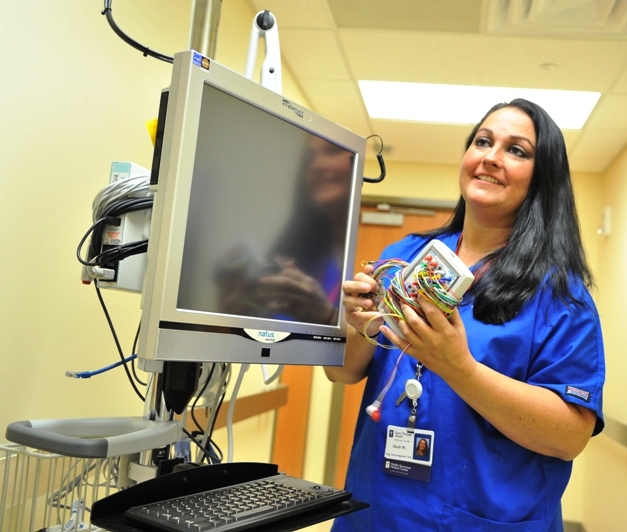Middle Tennessee Medical Center (MTMC) has opened a new Epilepsy Monitoring Unit designed to help physicians better pinpoint the type of seizure that is occurring, how often they are occurring or precisely locate the source. Ten percent of Americans will experience a seizure in their lifetime. Epilepsy and seizures affect almost 3 million people across the nation with approximately 200,000 new cases each year.
Through non-invasive video electroencephalography (EEG) monitoring, combining both video surveillance and simultaneous evaluation of brain activity, neurologists are given a more accurate report than EEG or video alone can provide.
“Knowing what happens during a seizure is invaluable information in the process of diagnosing epilepsy and seizures,” said Dr. Jessica Thomas, a board-certified neurologist with Tennessee Neurology Specialists-Murfreesboro who specializes in epilepsy and is the medical director of the Epilepsy Monitoring Unit at MTMC. “This is the first unit of its kind at MTMC and in Rutherford County and having this advanced technology will allow us to ultimately provide better care for our patients.”
Video EEG equipment has been installed in four rooms on the seventh floor of MTMC for both inpatient and outpatient treatment. Three additional portable units are available for use throughout the hospital for adult and pediatric patients and can also be used to perform EEGs with video surveillance.
“Epilepsy or seizures can be confusing and scary for children and parents.” said Dr. Javier Valero, a board-certified pediatric neurologist and epileptologist at Murfreesboro Medical Clinic and SurgiCenter and member of the medical staff at MTMC. “The use of the portable video EEG equipment is a way to effectively diagnose and treat pediatric patients, just as in adult patients, while minimizing impact to patient and family.”
Because the purpose of the video EEG is to record seizure activity, patients will often undergo a reduction in anti-seizure medications to provoke a seizure. Patients are closely supervised by physicians, nurses and EEG technicians during the process and are treated promptly. For patients that have been taking anti-seizure medications for a long time, the unit may be the safest place for them to be weaned off of their medications.





